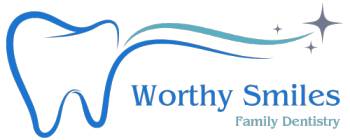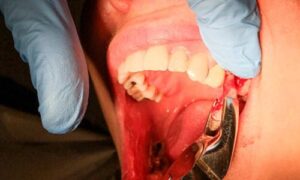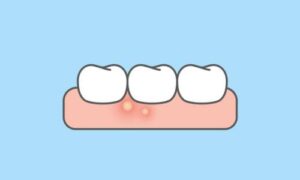Explore the insidious nature of gum diseases and the risks associated with their silent progression. Learn how to protect your oral health.
Introduction
Oral health is crucial to your well-being, and gum diseases pose a significant but often underestimated risk. The insidious nature of gum diseases makes them a silent threat that can progress unnoticed until serious complications arise. This article will delve into gum diseases, uncover the hidden risks, and offer valuable insights into maintaining oral health. Gum diseases, also known as periodontal diseases, are infections that affect the tissues surrounding and supporting your teeth. They can range from mild inflammation of the gums (gingivitis) to more severe conditions that can lead to tooth loss if left untreated. By understanding gum disease causes, symptoms, and preventive measures, you can take proactive steps to protect your oral health and maintain a beautiful smile.
The Unseen Onset: Recognizing Initial Symptoms
Gum diseases often begin their insidious journey as seemingly innocent gingivitis. This initial stage is typically characterized by symptoms like swollen gums, noticeable redness, and minor bleeding while brushing or flossing teeth. While many individuals might dismiss these early warning signs as merely annoying or inconsequential, they are the crucial first indicators of a more severe, often debilitating, oral condition that could ultimately culminate in tooth loss if not addressed promptly.
Risks Extending Beyond the Mouth: Systemic Implications
While it’s clear that gum diseases exert their most direct impact on the oral cavity, it’s essential to understand that their influence goes well beyond the confines of your teeth and gums. Untreated periodontal diseases have been firmly treated with systemic health issues like diabetes, heart diseases, and even complications during pregnancy, such as preterm birth.
The Crucial Importance of Timely Early Detection
Acting swiftly at the first signs of gum disease is essential. If detected early on, the progression of gum disease can often be effectively halted and, in many cases, even reversed. However, if ignored or left untreated, the condition inexorably progresses into a much more severe form known as periodontitis, which might necessitate more invasive and specialized treatments, including procedures like dental implant surgeries.
Treatment Strategies: A Proactive Stitch in Time Saves Nine
The specific treatment protocols for gum diseases can vary widely depending on the severity and extent of the condition. Still, they typically involve regular dental cleanings, targeted medications, and, for more advanced cases, even surgical interventions. Notably, the sooner you seek a professional diagnosis and begin treatment, the simpler, less invasive, and more cost-effective your therapeutic journey will likely be.
Understanding Gum Diseases
Before we explore the risks, let’s understand what gum diseases are. Gum diseases, also known as periodontal diseases, are infections that affect the tissues surrounding and supporting your teeth. They typically start with gingivitis, a mild form of gum disease characterized by redness, swelling, and bleeding of the gums. If left untreated, gingivitis can progress to periodontitis, a more severe form of gum disease that can lead to tooth loss and other complications. Maintaining good oral hygiene, maintainings, and dental check-ups is essential to prevent gum diseases from developing or worsening.
This important Progression
If left untreated, gingivitis can progress to more severe forms of gum disease, including periodontitis. In periodontitis, the inner layer of the gum and bone pull away from the teeth, forming pockets that can become infected. Over time, this can lead to tooth loss. Periodontitis is usually caused by poor oral hygiene and plaque buildup on the teeth. It is essential to see plaque buildupisease to prevent further damage to the gums and potential tooth loss.
The Silent Nature
What makes gum diseases particularly concerning is their silent progression. In the early stages, they often exhibit minimal symptoms, if any. This means that many people may have gum diseases without even realizing it. Without proper treatment, gum diseases can progress silently and cause significant damage to the gums and supporting structures of the teeth. Regular dental check-ups and good oral hygiene are essential in detecting and preventing the advancement of gum diseases before they lead to tooth loss.
Gum Disease Risks
Now, let’s delve into the risks associated with gum diseases. Understanding these risks is essential to protect your oral health proactively. Common risk factors for gum diseases include poor oral hygiene, smoking, hormonal changes in women, diabetes, certain medications, and genetic predisposition. A weakened immune system can also increase the likelihood of developing gum diseases. It is essential to be aware of these risks and take necessary precautions to maintain healthy gums and prevent potential complications.
1. Tooth Loss
Untreated gum diseases can lead to the loss of teeth. The infection weakens the supporting structures of your teeth, making them more susceptible to falling out. Tooth loss can significantly impact a person’s ability to chew and speak correctly, affecting their overall quality of life. Seeking early treatment for gum diseases can help prevent tooth loss and preserve oral health.
2. Gum Recession
Gum diseases can cause your gums to recede, exposing the tooth roots. This can lead to tooth sensitivity and an increased risk of cavities on the exposed surfaces. In addition, gum recession can also affect the appearance of your smile, causing your teeth to appear longer and uneven. It is important to address gum recession early to prevent further damage and maintain a healthy, comfortable smile.
3. Bad Breath
Persistent bad breath, also known as halitosis, is a common symptom of gum disease. The bacteria causing the infection produce foul-disease gases. These gases can linger in the mouth and contribute to chronic bad breath. Gum diseases can also lead to an unpleasant taste in the mouth, further affecting your oral hygiene and confidence. It is crucial to address gum diseases promptly to eliminate bad breath and maintain fresh breath throughout the day.
4. Systemic Health Risks
Emerging research has linked gum diseases to systemic health issues, including heart disease, diabetes, and respiratory problems. The bacteria from gum infections can enter the bloodstream and affect other parts of the body. This can potentially increase the risk of heart attacks, stroke, and complications in managing diabetes. Additionally, gum diseases have been associated with an increased likelihood of respiratory infections such as pneumonia. Therefore, oral health is essential for fresh breath and overall systemic health.
5. Inflammatory Response
Gum diseases trigger an inflammatory response in the body, which can contribute to chronic inflammation, potentially leading to other health problems. Chronic inflammation has been linked to conditions such as rheumatoid arthritis, certain cancers, and even Alzheimer’s disease. It is crucial to address gum diseases promptly to reduce the risk of these systemic health issues.
How to Protect Your Oral Health
Now that you know the risks, let’s discuss how to protect your oral health and prevent gum diseases from progressing silently. One crucial step is maintaining consistent oral hygiene, including brushing your teeth at least twice daily and flossing daily. ARegulatory check-ups and cleanings are essential for detecting and treating potential gum disease early.
1. Maintain Good Oral Hygiene
Brush your teeth at least twice a day and floss daily. This will help remove plaque and bacteria that can contribute to gum disease. Additionally, an antimicrobial mouthwash can further reduce the risk of gum infections. Regular dental check-ups and cleanings are essential to catching and treating gum diseases early.
2. Watch for Warning Signs
Pay attention to signs such as bleeding gums, persistent bad breath, and gum recession. If you notice these symptoms, consult your dentist promptly. Ignoring these warning signs can lead to more serious oral health issues, such as tooth loss and bone damage. Addressing concerns with your dentist to prevent further complications. is important
3. Manage Risk Factors
Certain factors, such as smoking, poor nutrition, and stress, can increase your risk of gum disease. Quit smoking, eat a balanced diet, and practice disease management techniques. These steps can help reduce your chances of developing gum diseases and maintain oral health. Additionally, maintaining good oral hygiene habits, such as brushing and flossing regularly, can also contribute to preventing gum diseases.
4. Stay Informed
Stay informed about the latest advancements in oral health and seek professional advice when needed. Regularly visit your dentist for check-ups and ask them about any concerns or questions you may have regarding your oral health. By staying informed and seeking professional advice, you can ensure that you take the necessary steps to maintain healthy gums.
FAQs About gum disease risks associated
Can gum diseases be reversed?
In the early stages, gingivitis can often be reversed with good oral hygiene practices, such as regular brushing, flossing, and professional dental cleanings. However, advanced gum diseases like periodontitis may require more intensive treatments and may not be reversible.
Are there any home remedies for gum diseases?
While maintaining excellent oral hygiene at home is essential, no guaranteed home remedies for treating gum diseases exist. Consulting with a dentist for a proper diagnosis and treatment plan is crucial.
Can children get gum diseases?
Yes, children can develop gum diseases, although children are associated with adults. Parents need to monitor their children’s parents needs to watch a pediatric dentist.
How often should I see a dentist for check-ups?
Regular dental check-ups are typically recommended every six months. However, your dentist may recommend more frequent visits if you have gum disease or other oral health issues.
Are there any foods that can help prevent gum diseases?
A balanced diet rich in fruits and vegetables and low in sugary and acidic foods can help promote healthy gums and oral health. However, diet alone is not a substitute for proper oral hygiene practices.
Is gum disease contagious?
Gum diseases themselves are not contagious. However, the bacteria that cause gum infections can be transmitted through kissing, so couples must maintain good oral hygiene to reduce the risk of spreading these bacteria.
Conclusion – Gum Diseases Risks
Gum diseases risks are a silent threat that can progress without noticeable symptoms until too late. Understanding the risks and taking proactive measures to protect your oral health is essential. Remember, regular dental check-ups and good oral hygiene are your best defenses against the silent progression of gum diseases. Don’t underestimate the importance of your oral health—it’s a key to your overall well-being. Neglecting your oral health can have serious consequences, as gum disease risks, and has been linked to systemic conditions such as heart disease and diabetes. Prioritizing regular dental check-ups and practicing good oral hygiene, you safeguard your teeth and gums and contribute to your overall health and well-being. Remember, prevention is always better than cure for gum diseases.














